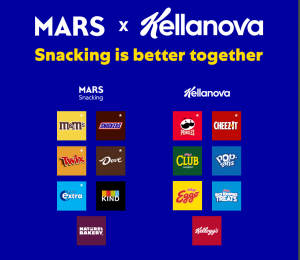Vice President Kamala Harris caught the attention of the food industry with remarks she made Aug. 15 that included a proposal to ban “price gouging” by food suppliers and grocery stores.
“Under the Biden-Harris administration, grocery prices have shot up 21 percent, part of an inflation surge that has raised overall costs by about 19 percent and soured many Americans on the economy, even as unemployment fell to historic lows,” Christopher Rugaber reported for the Associated Press. “Wages have also risen sharply since the pandemic, and have outpaced prices for more than a year. Still, surveys find Americans continue to struggle with higher costs.”
“We all know that prices went up during the pandemic when the supply chains shut down and failed,” Harris said Friday in Raleigh, N.C., as reported by Rugaber. “But our supply chains have now improved and prices are still too high.”
“Grocery prices are still painfully high compared to four years ago,” Rugaber reported, “but they increased just 1.1 percent in July compared with a year earlier, according to the most recent inflation report. That is in line with pre-pandemic increases.”
Food Industry Association President and CEO Leslie G. Sarasin decried price gouging, but denied that food retailers are to blame.
“Inflation has caused the price of many consumer goods – from gasoline to apparel – to increase. But 2024 Consumer Price Index (CPI) numbers reveal that the pace of year-over-year inflation continues to moderate, and food prices actually represent a bright spot in the data,” Sarasin said in a statement. “In fact, yesterday’s July CPI placed year-over-year food-at-home inflation at 1.1 percent, which remains below the 2.9 percent increase in overall inflation.
“Food retailers’ profit margins are, and always have been, extremely tight – just 1.6 percent last year. The entire food industry works tirelessly – amidst fierce competition – to address inflation and keep prices as low as possible to meet the needs of shoppers. However, the food industry continues to face significant economic headwinds – including increases in labor costs, volatile energy prices, an uptick in climate change-related severe weather events, supply chain challenges, and an unprecedented level of regulatory burden – that increase the costs to produce food and get it to store shelves,” Sarasin said.
“It is both inaccurate and irresponsible to conflate an illegal activity like price gouging – a defined legal term in which specific violations of trade practices law occur − with inflation, which is a broad, macroeconomic measure of increases in consumer prices over time due to supply chain cost pressures. In the context of food, inflation impacts how far the dollar goes when buying groceries.
“Americans should feel confident that the food industry has zero tolerance for deceptive practices like price gouging, an illegal activity that has no place in our stores and is inconsistent with the way the food industry conducts its business of feeding American families.
“When discussing food prices, it is imperative that our conversations remain grounded in reality and data, rather than rhetoric.”
“The proposal calling for a ban on grocery price gouging is a solution in search of a problem,” he said.
“Our independent grocers, already operating on extremely thin margins, are hurting from the same inflationary pressure points as their customers. Labor, rent, swipe fees, utilities; you name it, the price has increased. But what’s really hurting our local, independent grocers, is the lack of fair competition with big box retailers, who leverage their influence in ways that your independent grocer down the street can’t, leading to increased prices for everyone else.
“We’re hoping the next Administration (and the current one) will look closely at anticompetitive behaviors, including price discrimination, that are increasing prices for independent grocers and the community members they serve,” Ferrara said.
“We firmly believe that rather than proposing new legislation far-off in the future, the government should be enforcing the Robinson-Patman Act, a key antitrust law that already exists, but has been ignored for decades as big chains unfairly wield their influence.
“If Washington is serious about helping lower prices for consumers, it can help in three important ways: lower skyrocketing swipe fees, rein in excessive and burdensome regulations, and enforce antitrust laws like the Robinson-Patman Act that enhance price competition amongst retailers, regardless of size or location,” Ferrara said.
For more news of interest to the food industry, subscribe to Gourmet News.








